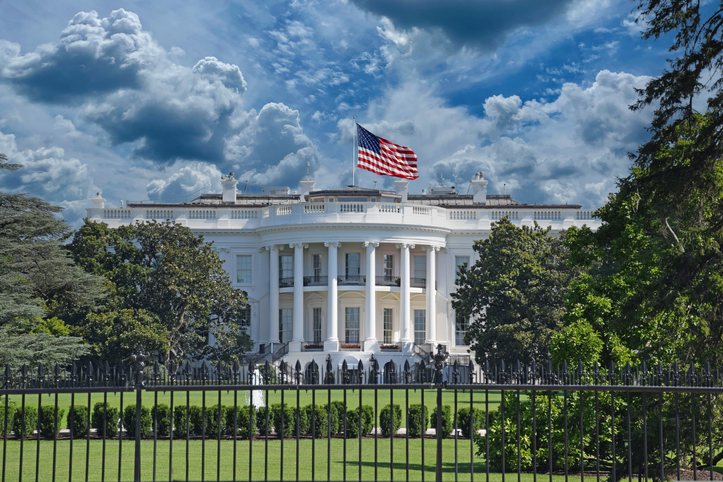$100,000 H-1B visa fee reshapes global talent deployment
In September 2025, the U.S. administration formally announced a new fee on H-1B visa applications. An executive proclamation signed on September 19, 2025 requires employers to pay $100,000 for any new H-1B petition filed on or after September 21, 2025. This policy took effect immediately at 12:01 a.m. EDT on that date and is set to remain in force for 12 months (until September 2026) unless extended.
Key details of the new H-1B fee rule include:
- Applicability: A $100,000 payment must accompany any new H-1B visa petition submitted on or after Sept. 21, 2025. This applies to all new filings going forward, including petitions for the Fiscal Year 2026 H-1B cap lottery.
- Duration: The requirement is currently slated to expire 12 months from its effective date unless renewed.
- Scope of affected cases: The fee applies to new H-1B petitions for individuals outside the United States. It does not apply to any H-1B visas or petitions that were approved or filed before Sept. 21, 2025.
- Exemptions: The Secretary of Homeland Security may waive the fee for certain workers (individually, by company, or by industry) if their employment is deemed vital to national security or welfare.
- Standard processing impacts: Routine H-1B extensions and renewals are not subject to the new $100,000 fee.
In practical terms, this policy adds a significant cost to what was previously a relatively modest application process. Under the prior system, entering the H-1B lottery required only a small registration fee, and even a successful H-1B petition would incur only a few thousand dollars in government and legal fees in total. The new $100,000 levy represents a major increase, effectively raising the price of sponsoring a skilled foreign worker to a level that may be prohibitive for many employers.

H-1B visa program demographics
The H-1B visa program has long been dominated by talent from India. In recent years, Indian nationals have comprised about 70% of H-1B beneficiaries, while the next largest source, China, accounted for around 12%. This reflects India’s significant role as a supplier of skilled professionals in IT, engineering, and business services.
IT services and outsourcing firms have historically been among the heaviest users of H-1B visas. Many of the top sponsoring employers have traditionally been large Indian IT consulting and outsourcing companies. More recently, U.S.-based technology firms such as Amazon and Microsoft have also become top sponsors, using H-1B visas to fill highly specialized roles.
At the same time, the largest India-based outsourcing firms have reduced their reliance on H-1Bs. Between FY2015 and FY2023, the number of new H-1B approvals attributed to the seven largest Indian IT firms dropped by more than half, reflecting a shift toward hiring locally in the U.S. and expanding offshore delivery.

Shifts in delivery models and offshore strategies
The introduction of the $100,000 H-1B application fee is expected to accelerate a shift toward offshore and distributed work models. Facing higher costs to bring workers into the United States, many employers are likely to reconsider rotating foreign staff into U.S. roles. Instead, they are expected to increase offshore delivery of projects and expand Global Capability Centers (GCCs) abroad.
India has a well-established GCC ecosystem, with more than 1,700 centers employing around 1.9 million professionals as of 2024. These centers support IT, engineering, R&D, and business process operations for global firms. With the H-1B route now more expensive, U.S. companies are expected to expand their GCC operations in India as an alternative way to leverage talent without relocating employees overseas.
The Philippines is also likely to benefit. With approximately 1.8 million employees in its business process outsourcing sector, the country already plays a major role in global service delivery. Companies may increasingly choose to base IT support, customer service, and back-office functions there. Other nearshore locations such as Canada, Mexico, and parts of Latin America are also expected to see growth in offshore or nearshore operations.

Training and compliance support for distributed teams
As organizations adapt to globally dispersed talent models, ensuring consistent training, compliance, and workforce enablement across different geographies becomes critical. Intuition provides enterprise learning solutions that support companies in developing skills, maintaining compliance, and enabling workforce productivity worldwide.
Digital platforms allow companies to deliver standardized training to employees in multiple regions. This ensures that whether a team is in New York, Bangalore, or Manila, they receive the same core content and can meet the same standards. Compliance training, role-specific skill development, and continuous professional education can all be delivered at scale, helping firms integrate global teams into their operations effectively.

Implications for workforce development
As companies expand Global Capability Centers in India and the Philippines in response to the new visa fee, consistent training standards will be essential. A scalable digital learning strategy can ensure employees across locations receive the same baseline skills, compliance training, and professional development.
eLearning platforms also enable skills-based mobility and talent management, supporting workforce deployment across geographies. When integrated with AI-driven workforce planning, these tools help organizations map skills, forecast needs, and scale teams efficiently. In competitive talent markets such as India and the Philippines, high-quality training is also a differentiator for attracting and retaining staff.
In the short term, many firms may rely on contractors to fill immediate gaps. Digital learning can support this by assessing candidates’ skills and providing onboarding modules to ensure consistent base-level capabilities.
Insights from APAC leadership
This analysis was developed in collaboration with Philip Eden, EVP Asia Pacific at Intuition, to reflect the realities and priorities of organizations across the region.
If you would like to explore how these shifts may affect your business and how Intuition can support you with scalable learning and workforce solutions, please fill out this form and Philip Eden or a member of his team will be in touch.

Sources
- White House Proclamation (Sept 19, 2025): Executive order establishing the $100,000 H-1B visa fee, effective Sept 21, 2025. https://www.whitehouse.gov/briefing-room/presidential-actions
- U.S. Department of Homeland Security / USCIS: Guidance confirming applicability only to new petitions and exemptions for renewals/national interest. https://www.uscis.gov
- U.S. Citizenship and Immigration Services (H-1B Data, FY2024): Indian nationals ~71% of approvals; Chinese nationals ~11.7%. https://www.uscis.gov/tools/reports-and-studies
- Times of India (Sept 2025): Coverage of $100,000 fee announcement and industry implications. https://timesofindia.indiatimes.com
- Reuters (Sept 2025): Industry response and expected acceleration of offshore delivery and GCC expansion. https://www.reuters.com
- Economic Times (2025): Analysis of Indian IT industry impacts and GCC growth outlook. https://economictimes.indiatimes.com
- NASSCOM / Deloitte GCC Report (2024): India hosts 1,700+ GCCs employing ~1.9 million professionals. https://nasscom.in
- IBPAP – IT & Business Process Association of the Philippines (2025): IT/BPO workforce ~1.8 million, ~9% of GDP. https://www.ibpap.org

